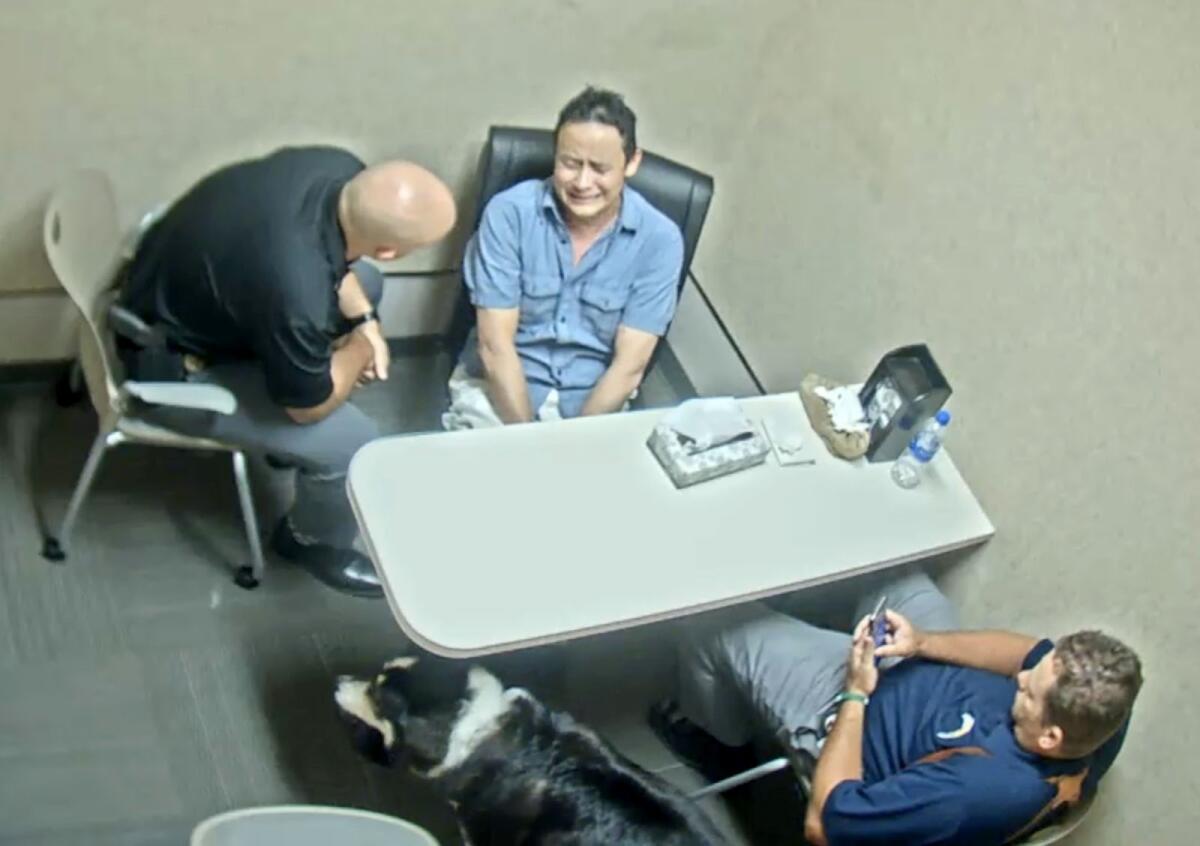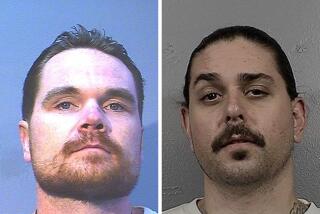Police pressured him to confess to a murder that never happened. Now, Fontana will pay him $900,000

The city of Fontana has agreed to pay nearly $900,000 to settle a federal lawsuit filed by a man who said police pressured him to falsely confess to a murder that never happened.
During a 17-hour interrogation in August 2018, Fontana Police Department officers questioned Thomas Perez Jr. about the disappearance of his father, whom Perez had reported missing. Officers alleged Perez had murdered his father and, when Perez denied the accusation, officers tried to convince him that he had forgotten the crime, according to a federal lawsuit, court records and video of the interrogation.
Throughout their lengthy questioning of Perez, officers used a variety of tactics aimed at goading him into confessing. They brought his dog into the interrogation room, told him the dog had walked through blood and would be sent away to be euthanized. They drove Perez to a dirt lot and asked him to walk around in search of his dad’s body. They told him that his father’s body was in a morgue.
“You murdered your dad,” one of the officers said, according to video of the interrogation. “Daddy’s dead because of you.”
L.A. County will pay $27 million to settle shooting, wrongful conviction lawsuits against Sheriff’s Department
The officers told Perez that he would have “closure” if he told them what happened. Perez repeatedly told them that he didn’t know.
“Stop lying to yourself,” officers told Perez.
Perez, who was distressed, visibly sleep-deprived and later testified that he had been denied medication for depression and other mental disorders, sobbed during the interview. At one point he tore out his hair and ripped open his shirt. When officers stepped out of the room, he tied his shoestrings around his neck in an attempt to hang himself, records and video show.
At the 16-hour mark, Perez told police that he had gotten into an altercation with his father and had stabbed him.
But a major problem with that confession soon emerged: Perez’s father was alive and safe. He had left the house he shared with his son and stayed overnight at a friend’s home near Union Station, according to court records. Later, he waited to catch a flight at Los Angeles International Airport to visit his daughter in Northern California. When police learned that Perez’s father was safe, they initially withheld the information and put Perez on a psychiatric hold.
“In my 40 years of suing the police I have never seen that level of deliberate cruelty by the police,” said Perez’s attorney, Jerry L. Steering. “After what I saw on the video of what they did to him, I now know that the police can get [anyone] to confess to killing Abe Lincoln.”
At age 67, Cathy Woods finally has her own place to live.
Fontana police were initially suspicious of Perez after observing that his house was in disarray, as if a “struggle” had taken place. Perez’s father’s phone was left inside the house and police said they found “visible bloodstains.” A police dog had picked up the scent of a corpse, court records show.
After the ordeal, Perez filed a federal lawsuit against the city of Fontana, which also named Officers David Janusz, Jeremy Hale, Ronald Koval, Robert Miller and Joanna Piña as defendants. The Fontana Police Department did not respond to The Times’ request for comment about the $898,000 settlement, or the officers’ status within the department.
U.S. District Judge Dolly Gee found that “a reasonable juror could conclude that the detectives inflicted unconstitutional psychological torture on Perez,” according to a court order last June.
“He testified that the officers prevented him from sleeping and deprived him of his medication,” Gee said. “There is no legitimate government interest that would justify treating Perez in this manner while he was in medical distress.”
More to Read
Sign up for Essential California
The most important California stories and recommendations in your inbox every morning.
You may occasionally receive promotional content from the Los Angeles Times.












